Here are my favorite most evocative poems about disasters categorized:
- Short poems about disasters
- Famous poems about disasters
- Poems about natural disasters
- Poems about hazards and disasters
So if you want the best poems about disasters, then you’re in the right place.
Let’s dig into it!
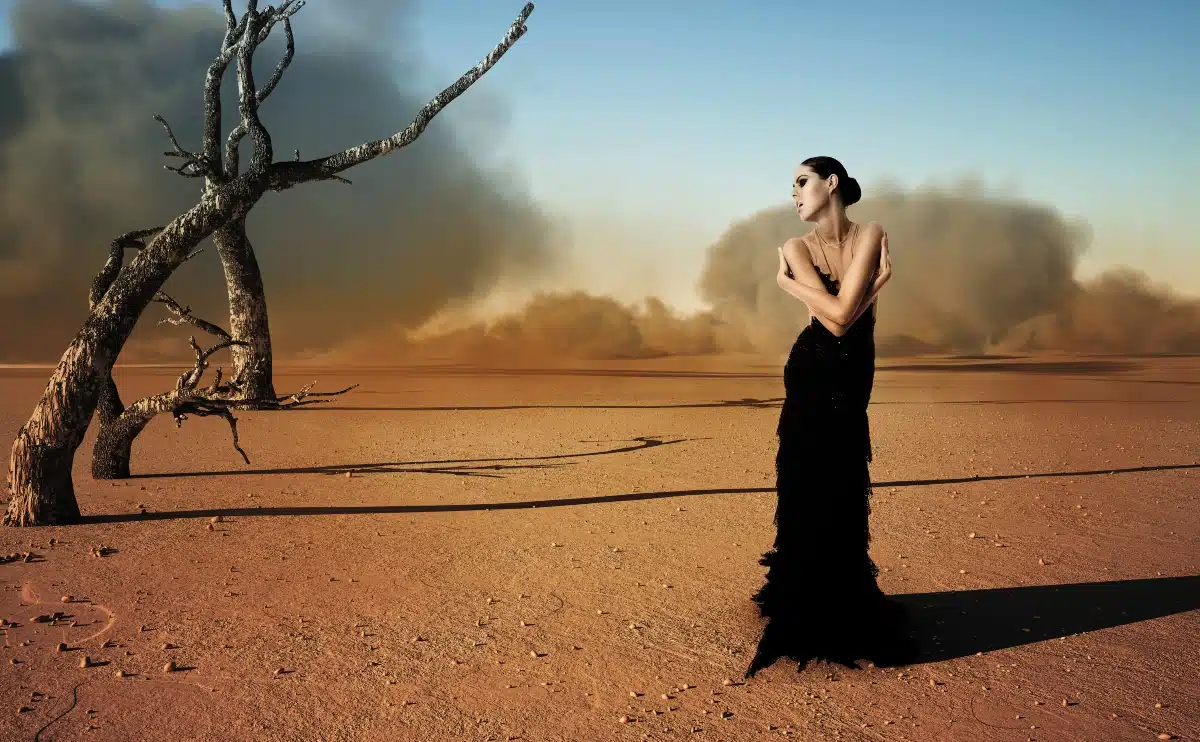
Evocative Poems About Disasters

In the world of poetry, harrowing tales of loss and grief amidst disasters serve as a testament to the strength and resilience of humanity.
In this collection of evocative poems, we delve into stories of disasters, capturing both their raw intensity and profound impact on our lives.
From natural calamities such as earthquakes and hurricanes to man-made wars and catastrophes, these poems serve as poignant reminders of the fragility of our existence.
Through vivid imagery and heartfelt expressions, they transport us to the heart of these disasters, compelling us to confront the depths of human resilience in the face of adversity.
So, let us embark on this journey and reflect on the meaning of certain tragedies in our lives in a way that only poetry can.
Let’s get straight to it!
My #1 Favorite Poem About Disasters

“Spring in War-Time” by Sara Teasdale
I feel the spring far off, far off,
The faint, far scent of bud and leaf
Oh, how can spring take heart to come
To a world in grief,
Deep grief?
The sun turns north, the days grow long,
Later the evening star grows bright—
How can the daylight linger on
For men to fight,
Still fight?
The grass is waking in the ground,
Soon it will rise and blow in waves—
How can it have the heart to sway
Over the graves,
New graves?
Under the boughs where lovers walked
The apple-blooms will shed their breath—
But what of all the lovers now
Parted by Death,
Grey Death?
Why Is “Spring in War-Time” My Favorite Poem About Disasters
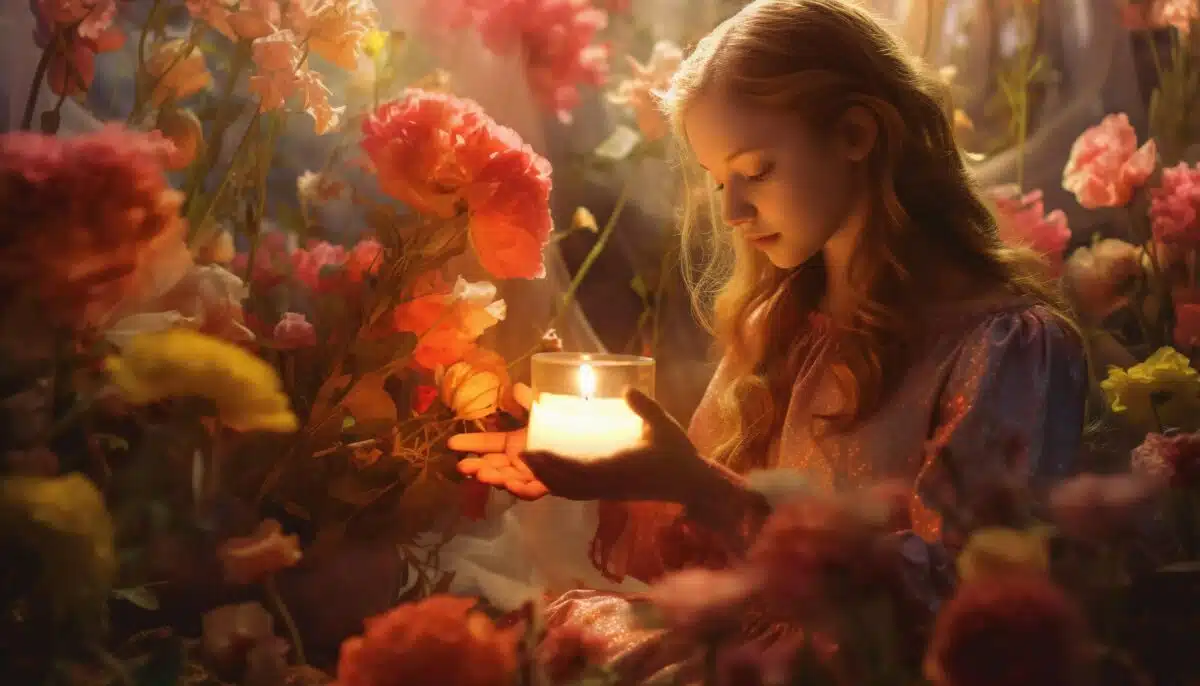
“Spring in War-Time” displays Teasdale’s simple yet elegant poetic style, which is evident in all her other masterpieces, making her one of my personal favorites.
Her captivating words transport me to a world of juxtapositions and emotions, where the beauty of spring clashes with the brutality of war.
The poet skillfully weaves together lifelike imagery and powerful metaphors, painting a haunting picture of the human experience in times of turmoil.
The poem’s rhythmic flow and lyrical language captivate my senses, allowing me to feel the contrasting emotions of hope and despair.
Through its poignant verses, “Spring in War-Time” reminds me of the resilience of the human spirit and the enduring power of art to capture the complexities of life.
Short Poems About Disasters

Relive the raw emotions that inspire every line of these disaster-themed short poems and find courage in the words of some of the greatest poets of all time.
Be motivated by the power of resilience and the unexpected beauty that can emerge from life’s darkest moments.
Let’s dive in!
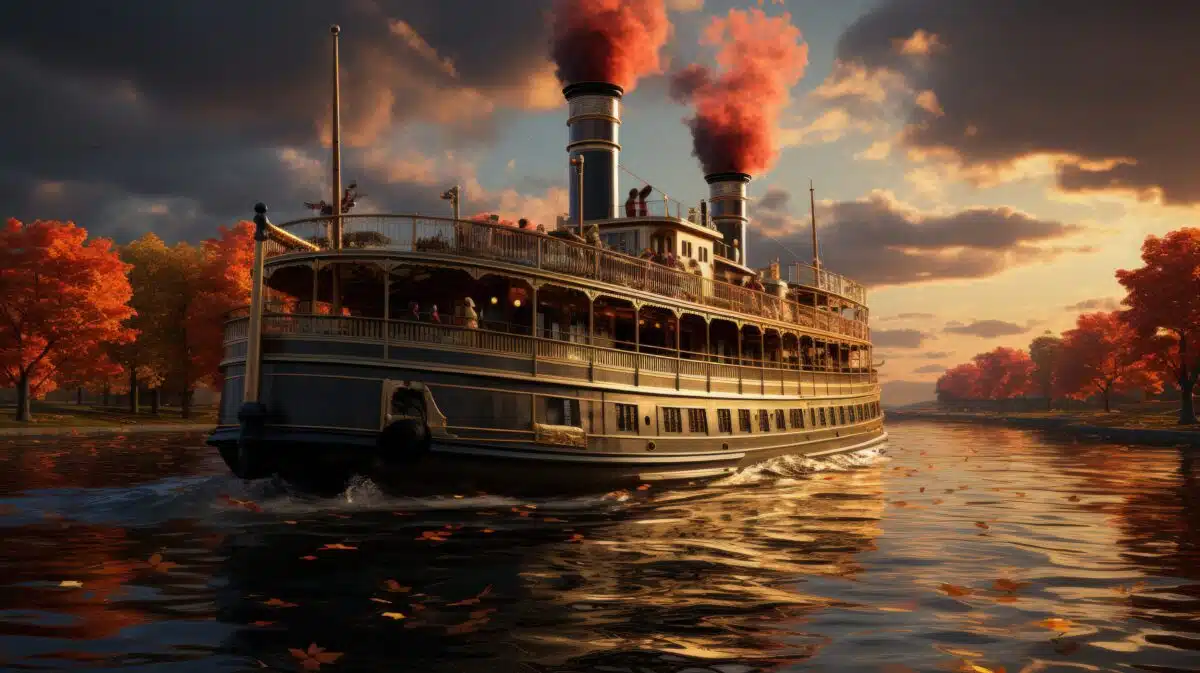
“Disaster To Steamer Victoria At London” by James McIntyre
At London Thames is a broad stream,
Which was the scene of a sad theme,
A fragile steamer there did play,
O’ercrowded on a Queen’s Birthday,
While all on board was bright and gay,
But soon ‘neath the cold waters lay,
Naught but forms of lifeless clay,
Which made, alas! sad month of May.
“Accidents” by Unknown
There once was a lady from Guam,
Who said, “Now the sea is so calm
I will swim, for a lark”;
But she met with a shark.
Let us now sing the ninetieth psalm.
“The Flood” by Robert Lee Frost
Blood has been harder to dam back than water.
Just when we think we have it impounded safe
Behind new barrier walls (and let it chafe!),
It breaks away in some new kind of slaughter.
We choose to say it is let loose by the devil;
But power of blood itself releases blood.
It goes by might of being such a flood
Held high at so unnatural a level.
It will have outlet, brave and not so brave.
weapons of war and implements of peace
Are but the points at which it finds release.
And now it is once more the tidal wave
That when it has swept by leaves summits stained.
Oh, blood will out. It cannot be contained.
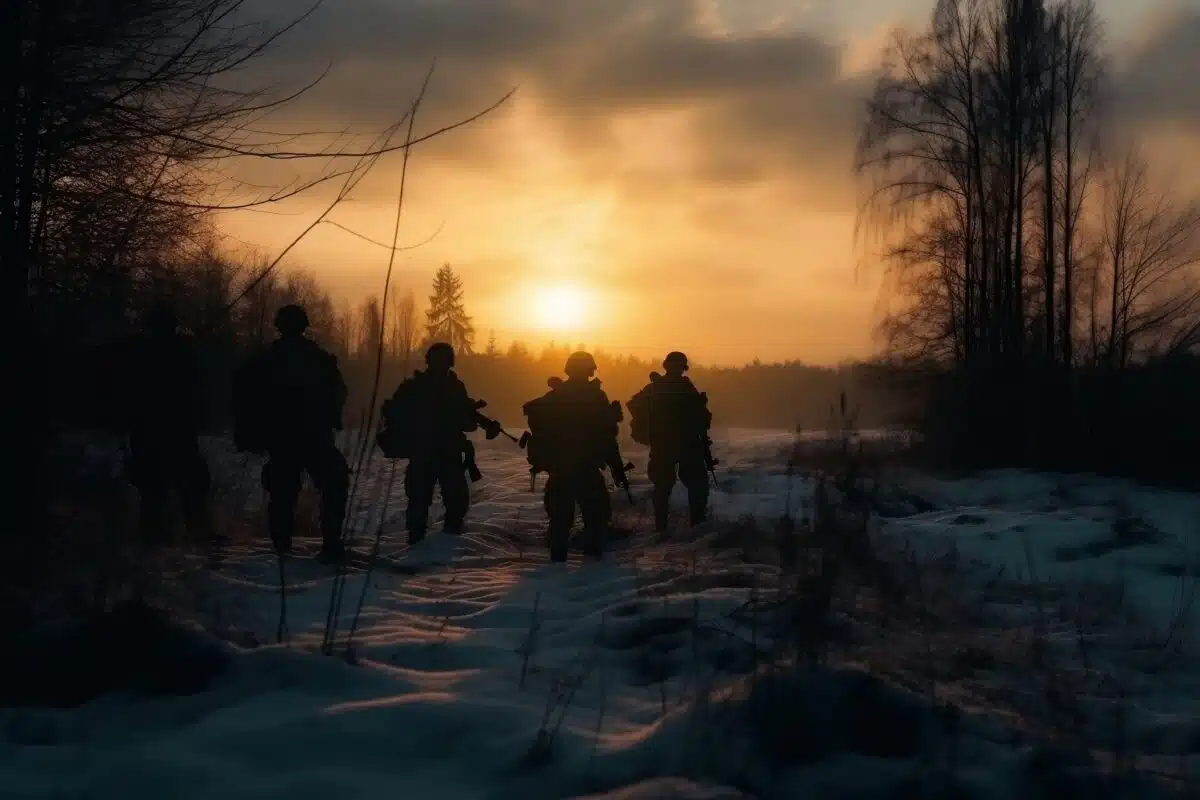
“The Battlefield” by Sydney Oswald
Around no fire the soldiers sleep to-night,
But lie a-wearied on the ice-bound field,
With cloaks wrapt round their sleeping forms, to shield
Them from the northern winds. Ere comes the light
Of morn brave men must arm, stern foes to fight.
The sentry stands, his limbs with cold congealed;
His head a-nod with sleep; he cannot yield,
Though sleep and snow in deadly force unite.
Amongst the sleepers lies the Boy awake,
And wide-eyed plans brave glories that transcend
The deeds of heroes dead; then dreams o’ertake
His tired-out brain, and lofty fancies blend
To one grand theme, and through all barriers break
To guard from hurt his faithful sleeping friend.
“The Challenge of the Guns” by A. N. Field
By day, by night, along the lines their dull boom rings,
And that reverberating roar its challenge flings.
Not only unto thee across the narrow sea,
But from the loneliest vale in the last land’s heart
The sad-eyed watching mother sees her sons depart.
And freighted full the tumbling waters of ocean are
With aid for England from England’s sons afar.
The glass is dim; we see not wisely, fax, nor well,
But bred of English bone, and reared on Freedom’s wine,
All that we have and are we lay on England’s shrine.
Famous Poems About Disasters

Get ready to experience heart-wrenching stories of loss and grief in times of tragedy through these famous verses.
Let’s explore the depths of sorrow together, while also finding solace and hope in these heartfelt classics.
Let get into it!
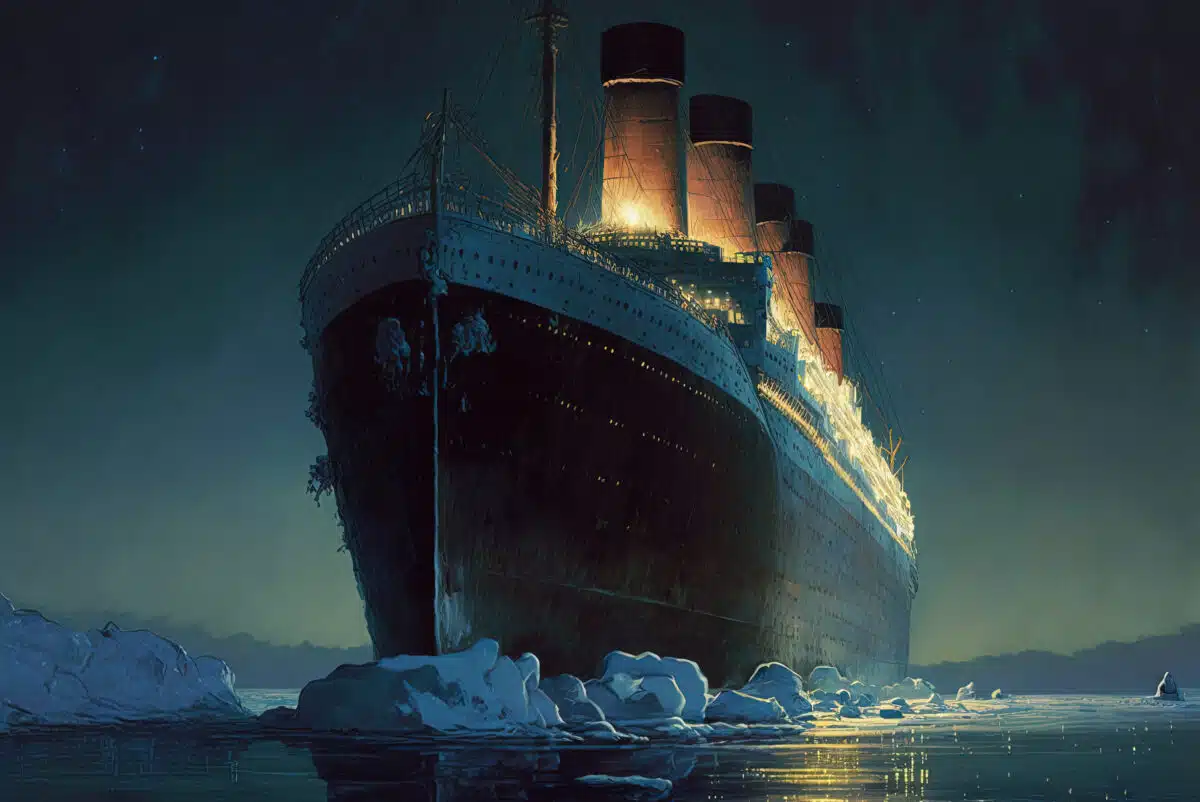
“The Titanic Disaster Poem” by J. H. McKenzie
I.
On the cold and dark Atlantic,
The night was growing late
Steamed the maiden ship Titanic
Crowded with human freight
She was valued at Ten Million,
The grandest ever roamed the seas,
Fitted complete to swim the ocean
When the rolling billows freeze.
II.
She bade farewell to England
All dressed in robes of white
Going out to plow the briny deep,
And was on her western flight;
She was now so swiftly gliding
In L Fifty and Fourteen
When the watchman viewed the monster
Just a mile from it, ’Twas seen.
III.
Warned by a German vessel
Of an enemy just ahead
Of an Iceberg, that sea monster,
That which the seamen dread.
On steamed this great Titanic;
She was in her swiftest flight;
She was trying to break the record,
On that fearful, fearful night.
IV.
Oh; she was plowing the Ocean
For speed not known before,
But alas, she struck asunder
To last for ever more,
A wireless message began to spread
Throughout the mighty deep, it said,
“We have struck an iceberg, being delayed;
Please rush to us with aid.”
V.
The Captain, of the White Star Line,
Who stood there in command,
Was an Admiral of seasoned mind
Enroute to the western land.
The Captain thought not of his life
But stood there to the last
And swimming saved a little child
As it came floating past.
VI.
Outstretched hands offered reward
For his brave and heroic deed
But the intrepid man went down aboard
Trying to rescue a passenger instead
This ill-starred giant of the sea
Was carried to his grave
On the last and greatest ship, was he,
That ever cleft a wave.
VII.
Gay was the crew aboard this ship,
Passengers large and small;
They viewed the coming danger,
They felt it one and all.
On played the grand Orchestra
Their notes were soft and clear;
They realized God’s power on land
On sea ’twas just as near.
VIII.
So they played this glorious anthem
Continued on the sea
And repeated the beautiful chorus
“Nearer My God To Thee.”
Then silenced when the ship went down
Their notes were heard no more.
Surely they’ll wear a starry crown
On that Celestial Shore.
IX.
Colonel Astor, a millionaire,
Scholarly and profound,
Said to his wife, “I’ll meet you dear
Tomorrow in York Town.”
His bride asked a seaman true
“Oh say! may husband go;”
The echo came upon the blue
He answered, “He may, you know.”
X.
This man rushed not to his seat
He seem to have no fear,
Being calm, serene and discreet
Tendered it to a lady near,
“Oh go, he said, my darling wife
Please be not in despair,
Be of good cheer, as sure as life,
I’ll meet you over there.”
XI.
Well could he have known this dreadful night
The sea would be his grave
Though he worked with all his might
For those whom he could save.
This man a soldier once has been
Of military art,
Proved himself full competent then
To do his noble part.
XII.
Major Butt, well known to fame
A lady did entreat,
To kindly name him to his friends
Whom she perchance to meet.
He forced the men to realize
The weaker they should save;
He gave his life with no surprise
To the sea—a watery grave;
And with a smile upon his face
He turned to meet his fate,
Soon, soon the sea would be his grave
In and ever after date.
XIII.
And Strauss, who did the children feed,
Had mercy on the poor,
And all such men the world doth need
To reverence evermore.
Oh, may the union of Strauss and wife
Be memorial to all men,
Each for the other gave their life,
A life we should commend;
And may all girls who chance in life
To read this poem thru
Emulate the deed of such a wife,
As went down in the blue.
XIV.
Down, down goes the great Titanic
With faster and faster speed
Until Alas! there comes a burst
She bade farewell indeed
Farewell, farewell to land and seas,
Farewell to wharves and shore,
For I must land beneath the breeze
To reach the land no more
I carry with me more human weight
Than ever recorded before
To leave them on a land sedate
They will land, Oh! land no more.
XV.
Only a few you see,
May tell the story
Of this great calamity;
Husbands, Wives, perhaps in glory
View the sad catastrophe.
The Carpathia eastern bound
For the Mediterranean sea,
Turned to the mighty sound,
The wireless C. Q. D.
XVI.
Quick was the preparation made,
To warn the unfortunate few,
For the homeless was cold and delayed
Being chilled by the wind as it blew.
So to the youth
Through life has started,
Be ever thoughtful and true,
Stay by the truth, be not departed
Success shall come to you
Oh, may you shun the Iceberg,
By the dreadful work was wrought,
And prosper by the lesson
This mighty ship has taught.
“The Massacre” by Walter De La Mare
The shadow of a poplar tree
Lay in that lake of sun,
As I with my little sword went in –
Against a thousand, one.
Haughty and infinitely armed,
Insolent in their wrath,
Plumed high with purple plumes they held
The narrow meadow path.
The air was sultry; all was still;
The sun like flashing glass;
And snip-snap my light-whispering steel
In arcs of light did pass.
Lightly and dull fell each proud head,
Spiked keen without avail,
Till swam my uncontented blade
With ichor green and pale.
And silence fell: the rushing sun
Stood still in paths of heat,
Gazing in waves of horror on
The dead about my feet.
Never a whir of wing, no bee
Stirred o’er the shameful slain;
Nought but a thirsty wasp crept in,
Stooped, and came out again.
The very air trembled in fear;
Eclipsing shadow seemed
Rising in crimson waves of gloom –
On one who dreamed.
“The Massacre at Scio” by Willam Cullen Bryant
Weep not for Scio’s children slain;
Their blood, by Turkish falchions shed,
Sends not its cry to Heaven in vain
For vengeance on the murderer’s head.
Though high the warm red torrent ran
Between the flames that lit the sky,
Yet, for each drop, an armed man
Shall rise, to free the land, or die.
And for each corpse, that in the sea
Was thrown, to feast the scaly herds,
A hundred of the foe shall be
A banquet for the mountain birds.
Stern rites and sad, shall Greece ordain
To keep that day, along her shore,
Till the last link of slavery’s chain
Is shivered, to be worn no more.
Poems About Natural Disasters
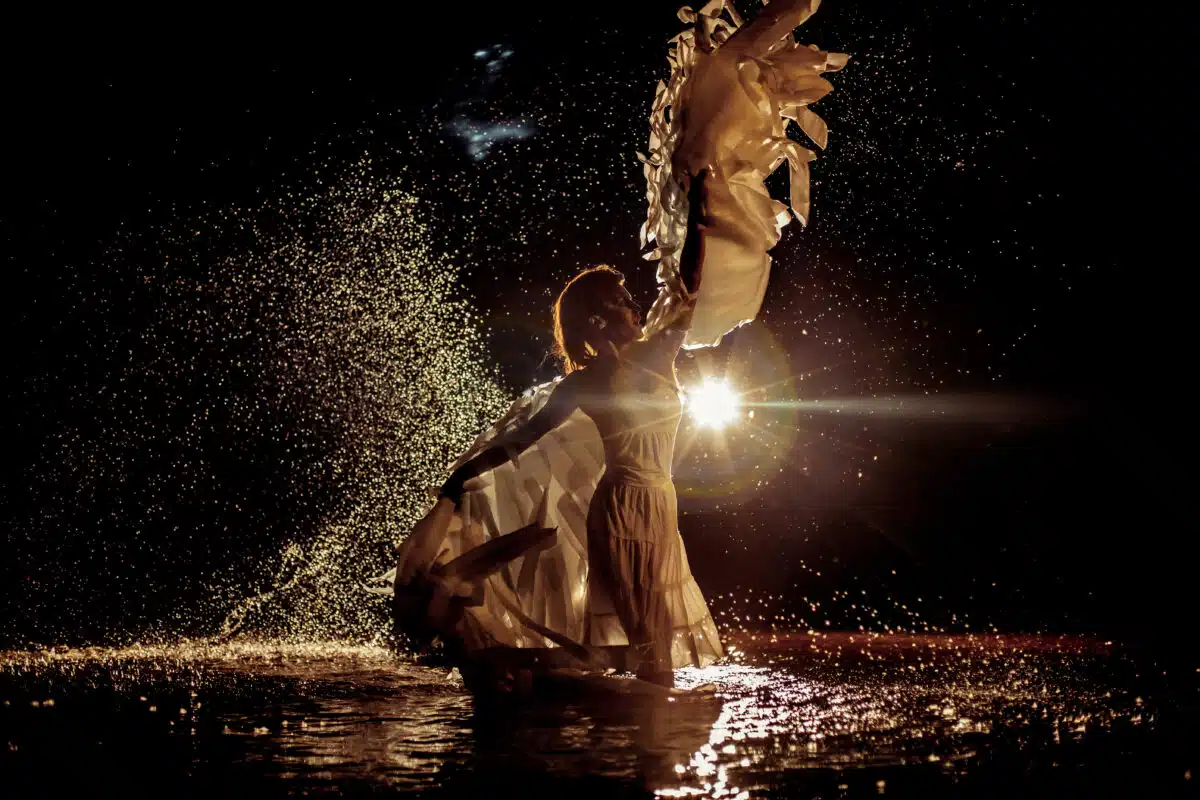
Natural disasters have long captivated the human imagination, evoking a mix of awe, fear, and respect.
Through the art of poetry, we can explore the raw power and devastating beauty of these cataclysmic events, finding solace and understanding amidst their chaos.
Let’s go!
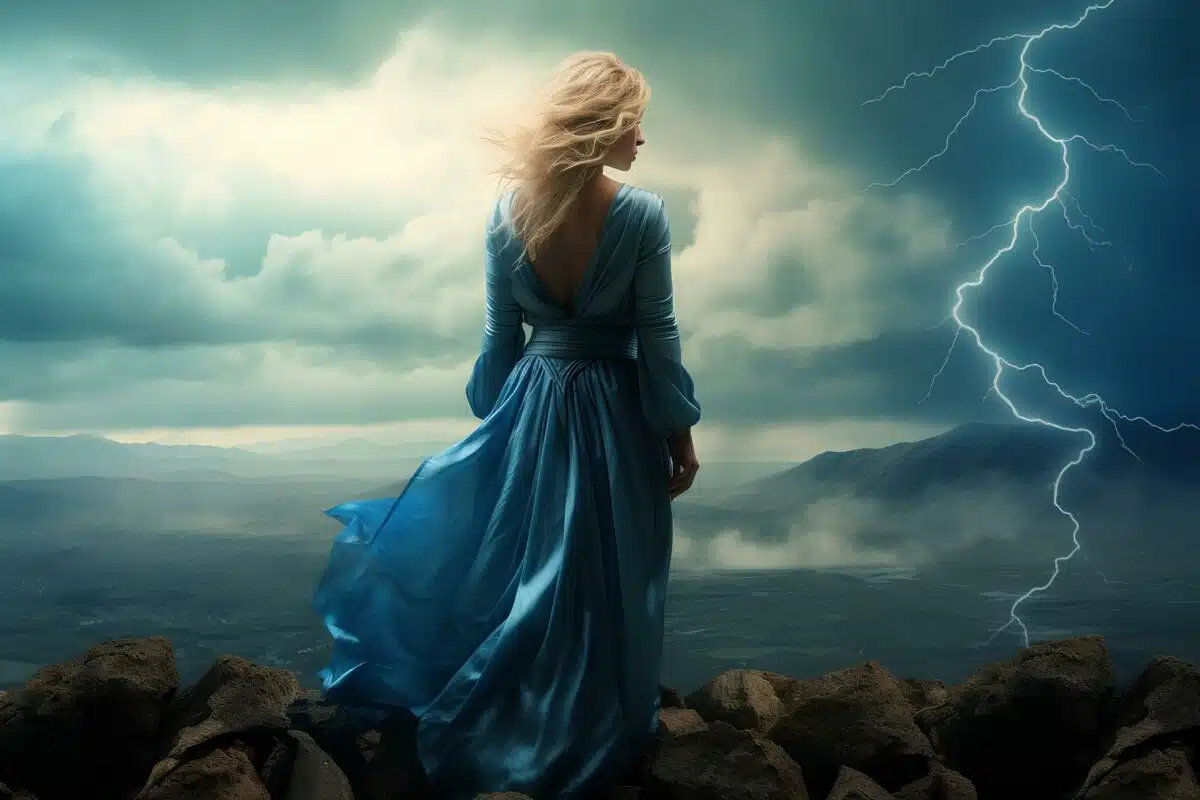
“The Storm” by Emily Elizabeth Dickinson
There came a wind like a bugle;
It quivered through the grass,
And a green chill upon the heat
So ominous did pass
We barred the windows and the doors
As from an emerald ghost;
The doom’s electric moccason
That very instant passed.
On a strange mob of panting trees,
And fences fled away,
And rivers where the houses ran
The living looked that day.
The bell within the steeple wild
The flying tidings whirled.
How much can come
And much can go,
And yet abide the world!
“The Earthquake” by Susanna Moodie
There was no sound in earth or air,
And soft the moonbeams smiled
On stately tower and temple fair,
Like mother o’er her child;
And all was hushed in the deep repose
That welcomes the summer evening’s close.
Many an eye that day had wept,
And many a cheek with joy grew bright,
Which now, alike unconscious, slept
Beneath the wan moonlight;
And mandolin and gay guitar
Had ceased to woo the evening star.
The lover has sought his couch again,
And the maiden’s eyes no longer glisten,
As she comes to the lattice to catch his strain,
And sighs while she bends to smile and listen.
She sleeps, but her rosy lips still move,
And in dreams she answers the voice of love.
Sleep on, ye thoughtless and giddy train,
Sorrow comes with the dawning ray;
Ye never shall wake to joy again,
Or your gay laugh gladden the rising day:
Death sits brooding above your towers,
And destruction rides on the coming hours.–
The day has dawned–but not a breath
Sighs through the sultry air;
The heavens above and earth beneath
One gloomy aspect wear–
Horror and doubt and wild dismay
Welcome the dawn of that fatal day.
Hark!–’tis not the thunder’s lengthened peal!
Hark!–’tis not the winds that rise;
Or the heavy crush of the laden wheel,
That echoes through the skies–
‘Tis the sound that gives the earthquake birth!
‘Tis the heavy groans of the rending earth!
Oh, there were shrieks of wild affright,
And sounds of hurrying feet,
And men who cursed the lurid light,
Whose glance they feared to meet:
And some sunk down in mute despair
On the parched earth, and perished there.–
It comes!–it comes!–that lengthened shock–
The earth before it reels–
The stately towers and temples rock,
The dark abyss reveals
Its fiery depths–the strife is o’er,
The city sinks to rise no more.
She has passed from earth like a fearful dream;–
Where her pomp and splendour rose,
There runs a dark and turbid stream,
And a sable cloud its shadow throws;
Pale sorrow broods in silence there,
To mourn the perished things that were.
“Storm” by Archibald Lampman
Out of the gray northwest, where many a day gone by
Ye tugged and howled in your tempestuous grot,
And evermore the huge frost giants lie,
Your wizard guards in vigilance unforgot,
Out of the gray northwest, for now the bonds are riven,
On wide white wings your thongless flight is driven,
That lulls but resteth not.
And all the gray day long, and all the dense wild night,
Ye wheel and hurry with the sheeted snow,
By cedared waste and many a pine-dark height,
Across white rivers frozen fast below;
Over the lonely forests, where the flowers yet sleeping
Turn in their narrow beds with dreams of weeping
In some remembered woe;
Across the unfenced wide marsh levels, where the dry
Brown ferns sigh out, and last year’s sedges scold
In some drear language, rustling haggardly
Their thin dead leaves and dusky hoods of gold;
Across gray beechwoods where the pallid leaves unfalling
In the blind gusts like homeless ghosts are calling
With voices cracked and old;
Across the solitary clearings, where the low
Fierce gusts howl through the blinded woods, and round
The buried shanties all day long the snow
Sifts and piles up in many a spectral mound;
Across lone villages in eerie wildernesses
Whose hidden life no living shape confesses
Nor any human sound;
Across the serried masses of dim cities, blown
Full of the snow that ever shifts and swells,
While far above them all their towers of stone
Stand and beat back your fierce and tyrannous spells,
And hour by hour send out, like voices torn and broken
Of battling giants that have grandly spoken,
The veering sound of bells;
So day and night, O Wind, with hiss and moan you fleet,
Where once long gone on many a green-leafed day
Your gentler brethren wandered with light feet
And sang, with voices soft and sweet as they,
The same blind thought that you with wilder might are speaking,
Seeking the same strange thing that you are seeking
In this your stormier way.
O Wind, wild-voicèd brother, in your northern cave,
My spirit also being so beset
With pride and pain, I heard you beat and rave,
Grinding your chains with furious howl and fret,
Knowing full well that all earth’s moving things inherit
The same chained might and madness of the spirit,
That none may quite forget.
You in your cave of snows, we in our narrow girth
Of need and sense, for ever chafe and pine;
Only in moods of some demonic birth
Our souls take fire, our flashing wings untwine;
Even like you, mad Wind, above our broken prison,
With streaming hair and maddened eyes uprisen,
We dream ourselves divine;
Mad moods that come and go in some mysterious way,
That flash and fall, none knoweth how or why,
O Wind, our brother, they are yours today,
The stormy joy, the sweeping mastery;
Deep in our narrow cells, we hear you, we awaken,
With hands afret and bosoms strangely shaken,
We answer to your cry.
I most that love you, Wind, when you are fierce and free,
In these dull fetters cannot long remain;
Lo, I will rise and break my thongs and flee
Forth to your drift and beating, till my brain
Even for an hour grow wild in your divine embraces,
And then creep back into mine earthly traces,
And bind me with my chain.
Nay, Wind, I hear you, desperate brother, in your might
Whistle and howl; I shall not tarry long,
And though the day be blind and fierce, the night
Be dense and wild, I still am glad and strong
To meet you face to face; through all your gust and drifting
With brow held high, my joyous hands uplifting,
I cry you song for song.
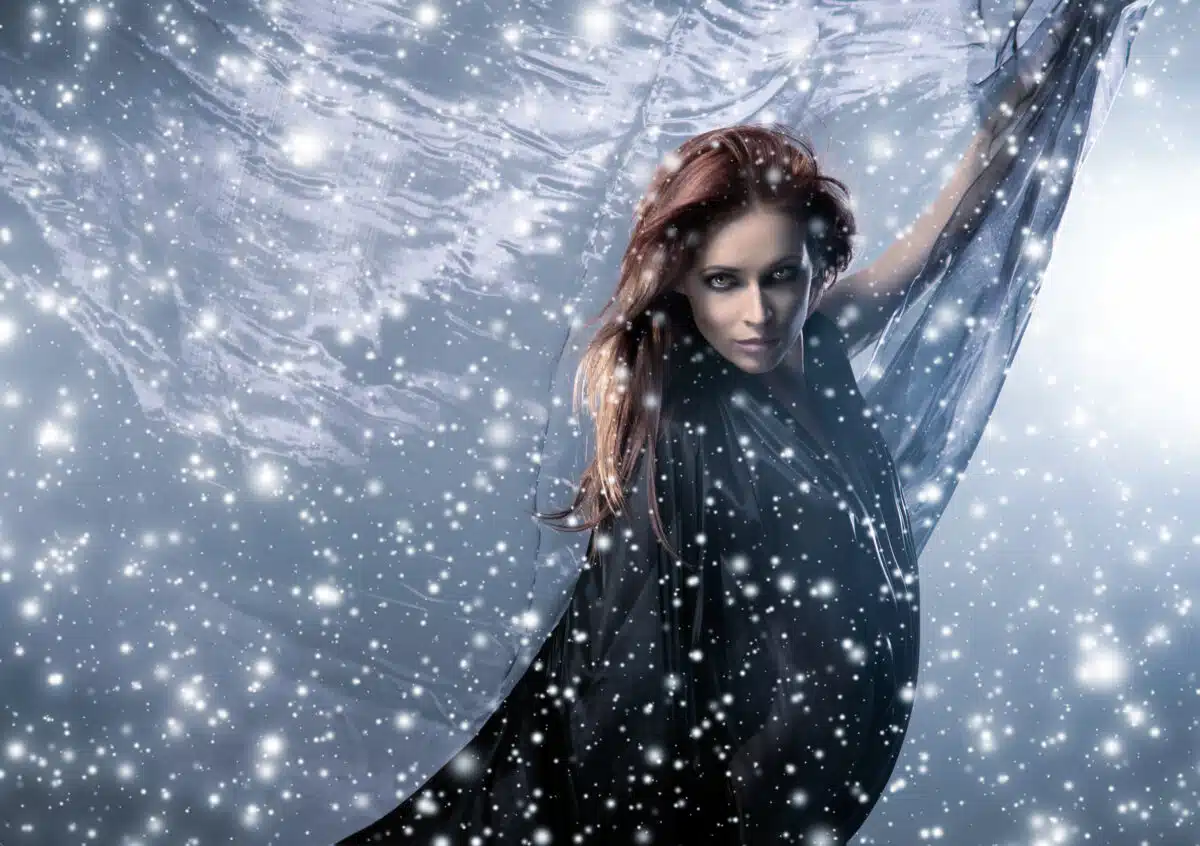
“The Cyclone” by James Whitcomb Riley
So lone I stood, the very trees seemed drawn
In conference with themselves.–Intense–intense
Seemed everything;–the summer splendor on
The sight,–magnificence!
A babe’s life might not lighter fail and die
Than failed the sunlight–Though the hour was noon,
The palm of midnight might not lighter lie
Upon the brow of June.
With eyes upraised, I saw the underwings
Of swallows–gone the instant afterward–
While from the elms there came strange twitterings,
Stilled scarce ere they were heard.
The river seemed to shiver; and, far down
Its darkened length, I saw the sycamores
Lean inward closer, under the vast frown
That weighed above the shores.
Then was a roar, born of some awful burst!–
And one lay, shrieking, chattering, in my path–
Flung–he or I–out of some space accurst
As of Jehovah’s wrath:
Nor barely had he wreaked his latest prayer,
Ere back the noon flashed o’er the ruin done,
And, o’er uprooted forests touseled there,
The birds sang in the sun.
“Floods” by Ella Wheeler Wilcox
In the dark night, from sweet refreshing sleep
I wake to hear outside my window-pane
The uncurbed fury of the wild spring rain,
And weird winds lashing the defiant deep,
And roar of floods that gather strength and leap
Down dizzy, wreck-strewn channels to the main.
I turn upon my pillow and again
Compose myself for slumber.
Let them sweep;
I once survived great floods, and do not fear,
Though ominous planets congregate, and seem
To foretell strange disasters.
From a dream –
Ah! dear God! such a dream! – I woke to hear,
Through the dense shadows lit by no star’s gleam,
The rush of mighty waters on my ear.
Helpless, afraid, and all alone, I lay;
The floods had come upon me unaware.
I heard the crash of structures that were fair;
The bridges of fond hopes were swept away
By great salt waves of sorrow. In dismay
I saw by the red lightning’s lurid glare
That on the rock-bound island of despair
I had been cast. Till the dim dawn of day
I heard my castles falling, and the roll
Of angry billows bearing to the sea
The broken timbers of my very soul.
Were all the pent-up waters from the whole
Stupendous solar system to break free,
There are no floods that now can frighten me.
“Storm” by Emma Lazarus
Serene was morning with clear, winnowed air,
But threatening soon the low, blue mass of cloud
Rose in the west, with mutterings faint and rare
At first, but waxing frequent and more loud.
Thick sultry mists the distant hill-tops shroud;
The sunshine dies; athwart black skies of lead
Flash noiselessly thin threads of lightning red.
Breathless the earth seems waiting some wild blow,
Dreaded, but far too close to ward or shun.
Scared birds aloft fly aimless, and below
Naught stirs in fields whence light and life are gone,
Save floating leaves, with wisps of straw and down,
Upon the heavy air; ‘neath blue-black skies,
Livid and yellow the green landscape lies.
And all the while the dreadful thunder breaks,
Within the hollow circle of the hills,
With gathering might, that angry echoes wakes,
And earth and heaven with unused clamor fills.
O’erhead still flame those strange electric thrills.
A moment more,-behold! yon bolt struck home,
And over ruined fields the storm hath come!
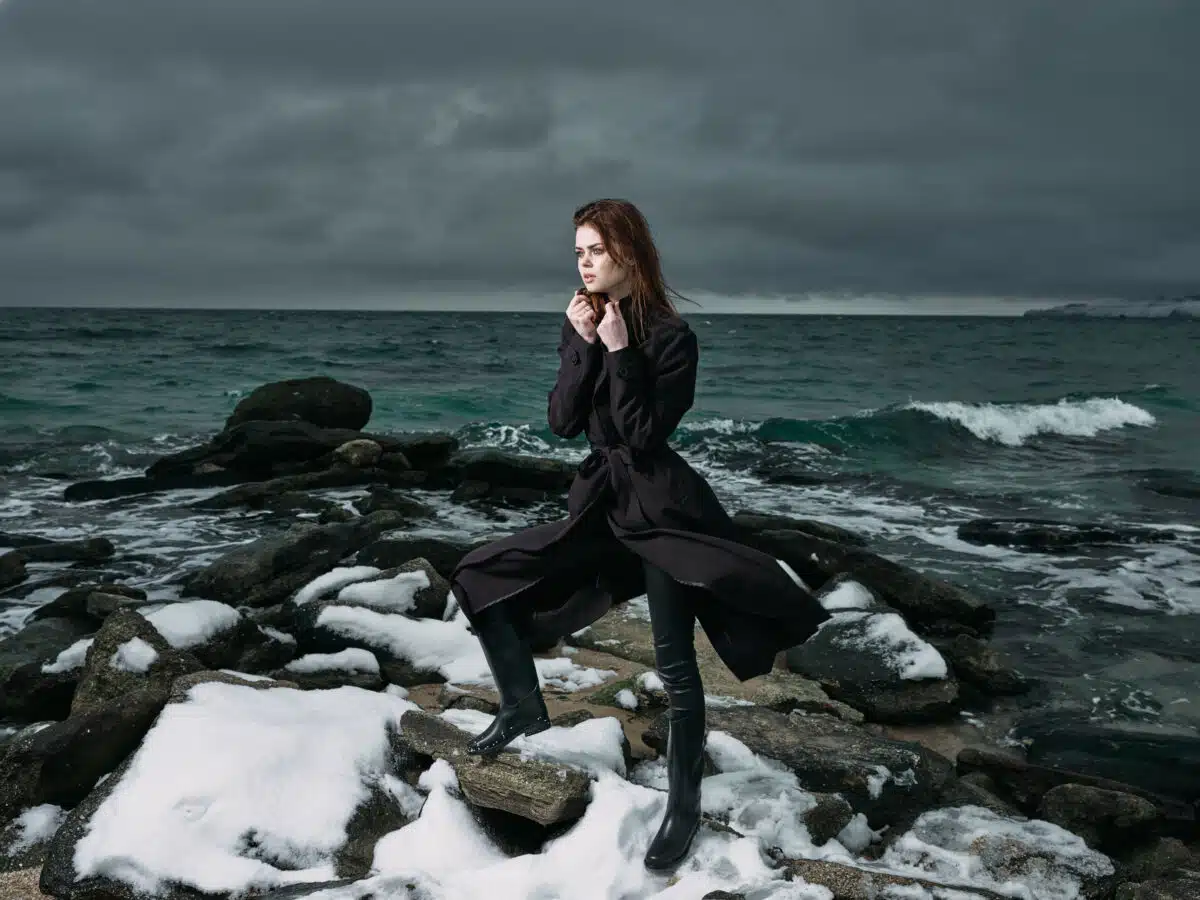
“The Tempest Stilled” by Thomas Frederick Young
The sky was dark with threat’ning clouds,
And fiercely on the raging sea,
The roaring tempest wilder swept,
And fiercer rag’d old Galilee.
Deep, dark and wild the waters roll’d,
And fast across the lurid sky
The black clouds pass’d, as if to hide
The lights of heav’n from human eye.
A little boat, from crest to crest
Was lash’d about, and wildly thrown,
While down below lay timid souls,
Too faint to shriek, too weak to groan.
While thunders roll’d, and lightning flash’d,
And fiercer onward rush’d the waves,
Deep down below these mortals look’d
With freighted mind, to wat’ry graves.
The helmsman held the rudder still,
But unavailing his control;
The blasts grew wild, and wilder yet,
And louder grew the thunder’s roll.
His hand grew faint, his heart grew sick,
As still he saw the lightning’s glare,
And heard the thunders toll his doom,
And voices shriek it in the air.
Air, water, heavens, all combin’d,
Seem’d on the ship their wrath to pour,
Combin’d to sink it in the tide,
And keep it ever from the shore.
One hope was left, and only one;
The Master on a pillow slept,
And to him these affrighted ones,
So weak of faith, in silence crept.
With gentle touch they wake the Lord,
And half in hope, and half in fear,
They cry, “save us, or we’re lost.
O Master, Lord, wilt thou not hear?”
With gentle mien the Master rose,
And to his mild, but mighty will,
The thunders, winds and billows bow’d,
And answer’d yes, his “peace be still.”
“O, fearful ones, why do you fear?”
Then said the mighty Lord of all;
“Why trust ye not, ye faithless ones,
And call in faith, whene’er ye call?”
Thus, on the raging sea of life,
While billows wild around us swell,
Let faith in Christ our fears disperse,
Let trust in Him our sorrows quell.
When bitter anguish fills our breast,
And weak and trembling grows our hand,
Give Christ the rudder of our ship,
And he will bring us safe to land.
For wind, and sea, and thunder’s roll,
His great command at once obey,
And those who trust Him, He will lead
Through storm and gloom, to perfect day.
“The Flood” by John Clare
Waves trough, rebound, and furious boil again,
Like plunging monsters rising underneath,
Who at the top curl up a shaggy mane,
A moment catching at a surer breath,
Then plunging headlong down and down, and on
Each following whirls the shadow of the last;
And other monsters rise when those are gone,
Crest their fringed waves, plunge onward and are past.
The chill air comes around me oceanly,
From bank to bank the waterstrife is spread;
Strange birds like snowspots oer the whizzing sea
Hang where the wild duck hurried past and fled.
On roars the flood, all restless to be free,
Like Trouble wandering to Eternity.
“Storm Fear” by Robert Lee Frost
When the wind works against us in the dark,
And pelts with snow
The lowest chamber window on the east,
And whispers with a sort of stifled bark,
The beast,
‘Come out! Come out!’
It costs no inward struggle not to go,
Ah, no!
I count our strength,
Two and a child,
Those of us not asleep subdued to mark
How the cold creeps as the fire dies at length,
How drifts are piled,
Dooryard and road ungraded,
Till even the comforting barn grows far away
And my heart owns a doubt
Whether ’tis in us to arise with day
And save ourselves unaided.
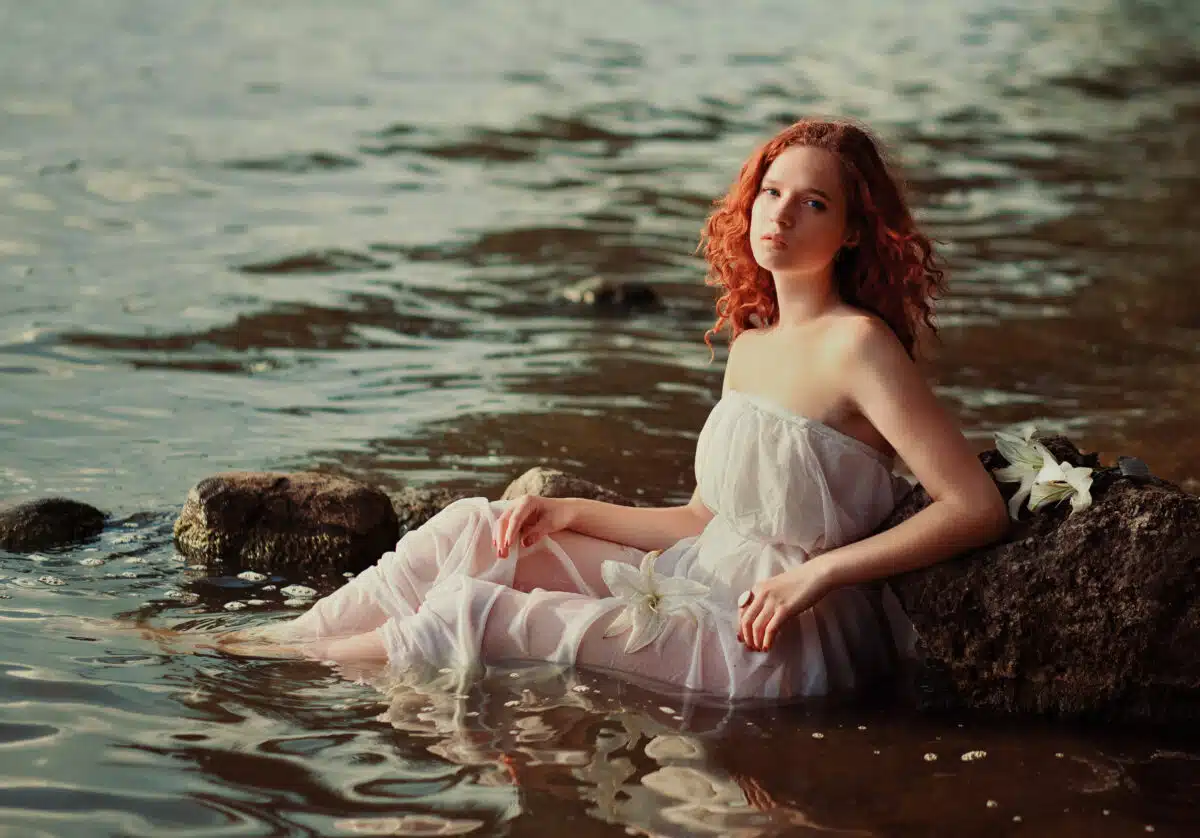
“Flood” by James Joyce
Gold brown upon the sated flood
The rock vine clusters lift and sway;
Vast wings above the lambent waters brood
Of sullen day.
A waste of waters ruthlessly
Sways and uplifts its weedy mane
Where brooding day stares down upon the sea
In dull disdain.
Uplift and sway, O golden vine,
Your clustered fruits to love’s full flood,
Lambent and vast and ruthless as is thine
Incertitude!
“Drouth In Autumn” by Madison Julius Cawein
Gnarled acorn-oaks against a west
Of copper, cavernous with fire;
A wind of frost that gives no rest
To such lean leaves as haunt the brier,
And hide the cricket’s vibrant wire.
Sear, shivering shocks, and stubble blurred
With bramble-blots of dull maroon;
And creekless hills whereon no herd
Finds pasture, and whereo’er the loon
Flies, haggard as the rainless moon.
“The Floods” by Rudyard Kipling
The rain it rains without a stay
In the hills above us, in the hills;
And presently the floods break way
Whose strength is in the hills.
The trees they suck from every cloud,
The valley brooks they roar aloud,
Bank-high for the lowlands, lowlands,
Lowlands under the hills!
The first wood down is sere and small,
From the hills–the brishings off the hills;
And then come by the bats and all
We cut last year in the hills;
And then the roots we tried to cleave
But found too tough and had to leave,
Polting down the lowlands, lowlands,
Lowlands under the hills!
The eye shall look, the ear shall hark
To the hills, the doings in the hills!
And rivers mating in the dark
With tokens from the hills.
Now what is weak will surely go,
And what is strong must prove it so,
Stand Fast in the lowlands, lowlands,
Lowlands under the hills!
The floods they shall not be afraid,
Nor the hills above ’em, nor the hills,
Of any fence which man has made
Betwixt him and the hills.
The waters shall not reckon twice
For any work of man’s device,
But bid it down to the lowlands, lowlands,
Lowlands under the hills!
The floods shall sweep corruption clean,
By the hills, the blessing of the hills,
That more the meadows may be green
New-mended from the hills.
The crops and cattle shall increase,
Nor little children shall not cease.
Go plough the lowlands, lowlands,
Lowlands under the hills!
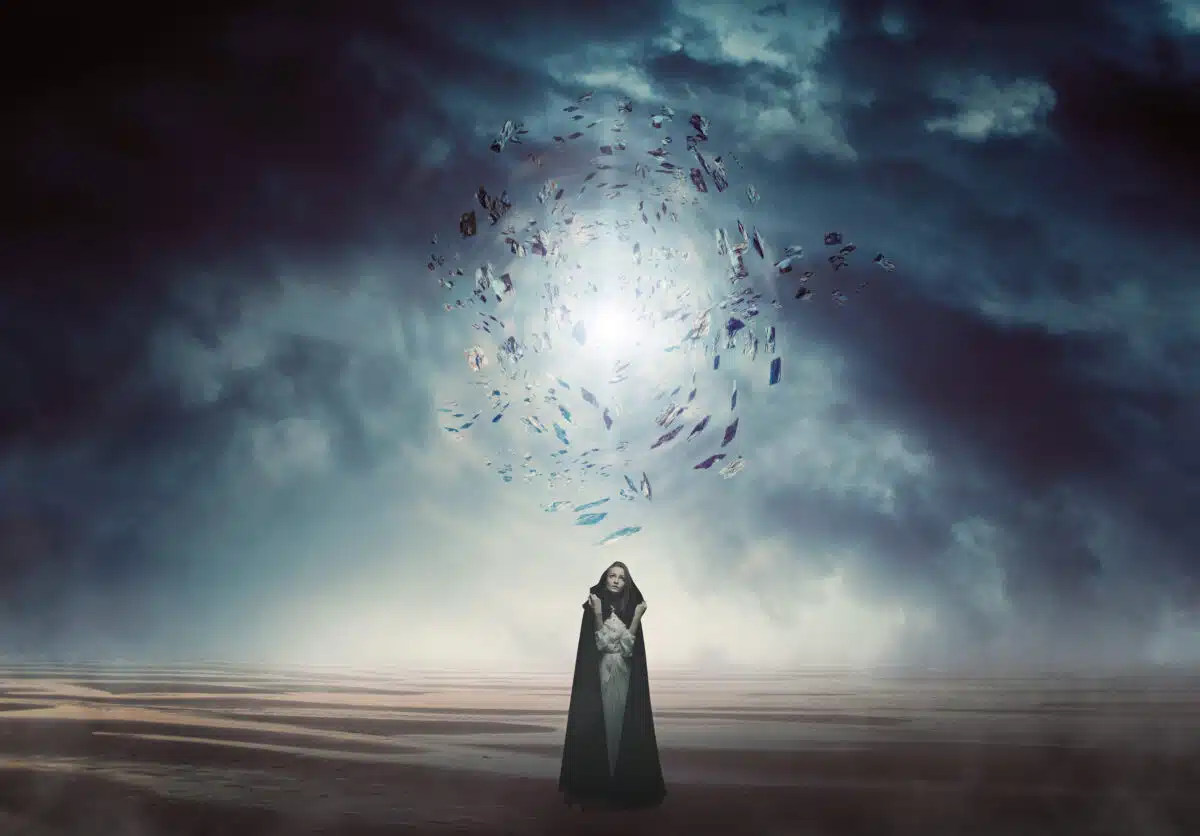
From “The Hurricane” by William Cullen Bryant
Darker, still darker! the whirlwinds bear
The dust of the plains to the middle air:
And hark to the crashing, long and loud,
Of the chariot of God in the thunder-cloud!
You may trace its path by the flashes that start
From the rapid wheels where’er they dart,
As the fire-bolts leap to the world below,
And flood the skies with a lurid glow.
What roar is that? ’tis the rain that breaks
In torrents away from the airy lakes,
Heavily poured on the shuddering ground,
And shedding a nameless horror round.
Ah! well known woods, and mountains, and skies,
With the very clouds! ye are lost to my eyes.
I seek ye vainly, and see in your place
The shadowy tempest that sweeps through space,
A whirling ocean that fills the wall
Of the crystal heaven, and buries all.
And I, cut off from the world, remain
Alone with the terrible hurricane.
Poems About Hazards and Disasters
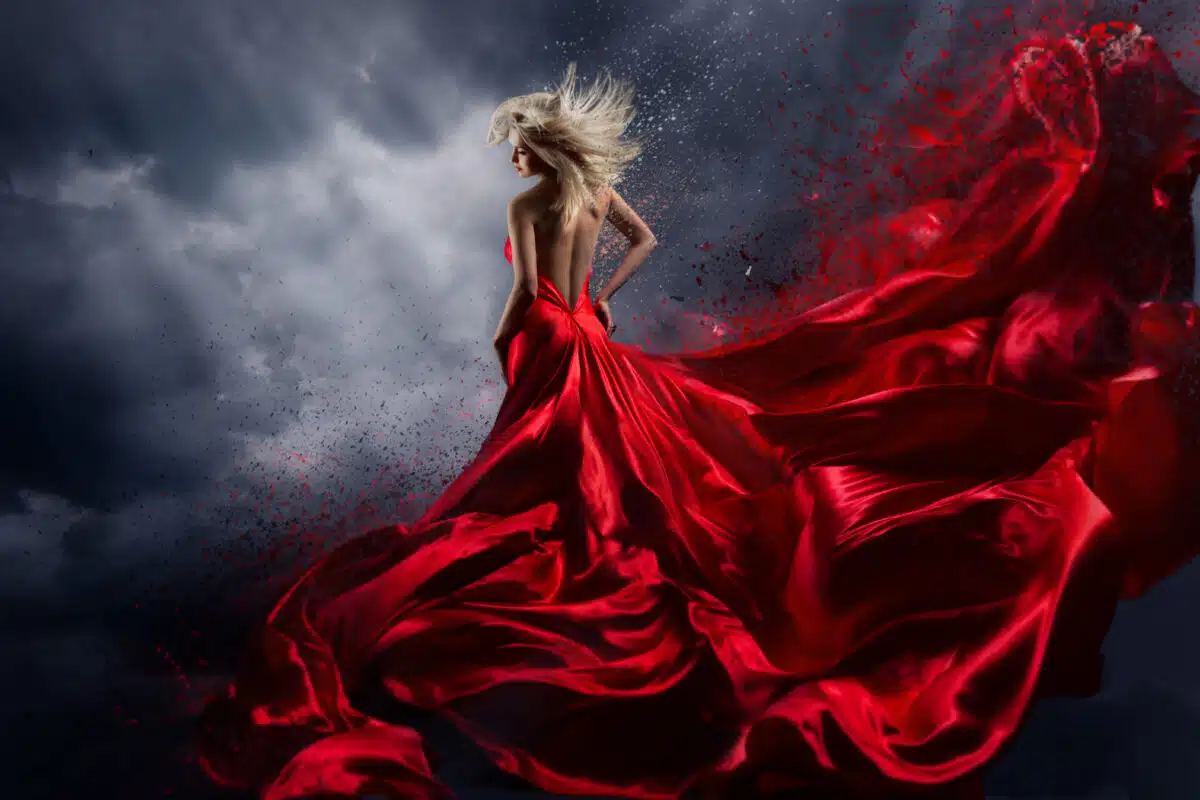
Poems that explore hazards and disasters serve as a subtle reminder of the fragility of life.
In these verses, we will carefully navigate the complexities of natural calamities and human-made crises, while also exploring the resilience that emerges amidst chaos, woven together with the beauty of poetic expression.
Keep reading!
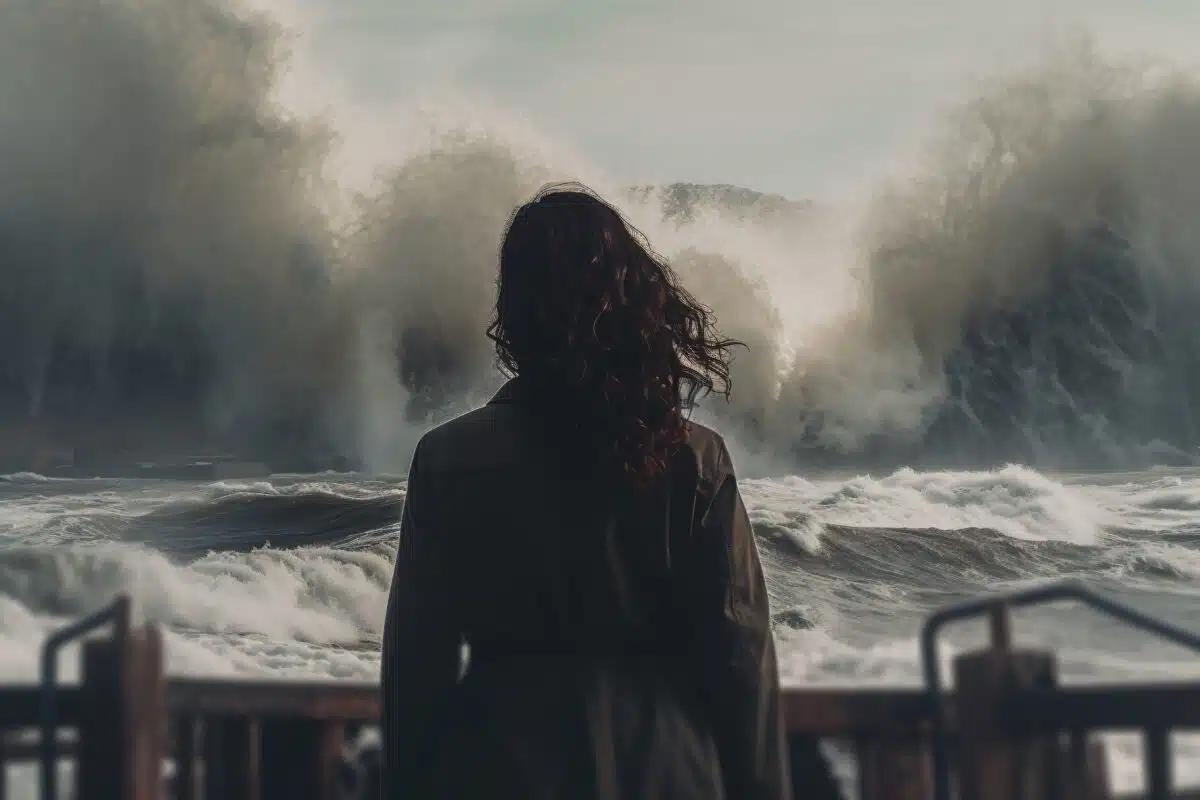
“Storm” by Emily Elizabeth Dickinson
It sounded as if the streets were running,
And then the streets stood still.
Eclipse was all we could see at the window,
And awe was all we could feel.
By and by the boldest stole out of his covert,
To see if time was there.
Nature was in her beryl apron,
Mixing fresher air.
“Disaster” by Charles Stuart Calverley
‘Twas ever thus from childhood’s hour!
My fondest hopes would not decay:
I never loved a tree or flower
Which was the first to fade away!
The garden, where I used to delve
Short-frock’d, still yields me pinks in plenty:
The peartree that I climb’d at twelve
I see still blossoming, at twenty.
I never nursed a dear gazelle;
But I was given a parroquet –
(How I did nurse him if unwell!)
He’s imbecile, but lingers yet.
He’s green, with an enchanting tuft;
He melts me with his small black eye:
He’d look inimitable stuff’d,
And knows it – but he will not die!
I had a kitten – I was rich
In pets – but all too soon my kitten
Became a full-sized cat, by which
I’ve more than once been scratch’d and bitten.
And when for sleep her limbs she curl’d
One day beside her untouch’d plateful,
And glided calmly from the world,
I freely own that I was grateful.
And then I bought a dog – a queen!
Ah Tiny, dear departing pug!
She lives, but she is past sixteen
And scarce can crawl across the rug.
I loved her beautiful and kind;
Delighted in her pert Bow-wow:
But now she snaps if you don’t mind;
‘Twere lunacy to love her now.
I used to think, should e’er mishap
Betide my crumple visaged Ti,
In shape of prowling thief, or trap,
Or coarse bull-terrier – I should die.
But ah! disasters have their use;
And life might e’en be too sunshiny:
Nor would I make myself a goose,
If some big dog should swallow Tiny.
“The Storm” by Alan L. Strang
The rough old Mr. Storm
Is whirling, swirling past
He makes the treetops bow their heads
And trembles at his blast.
He never stops to think
Of the damage he may do,
He’s always rushing in and out
And hitting, batting you.
He pushes big, black clouds
Against the mountain tops;
The rain and hail comes rushing down
In large, round crystal drops.
The storm will soon be over;
See the rainbow in the sky.
The birds will sing on airy wing,
And the bright sun shine on high.
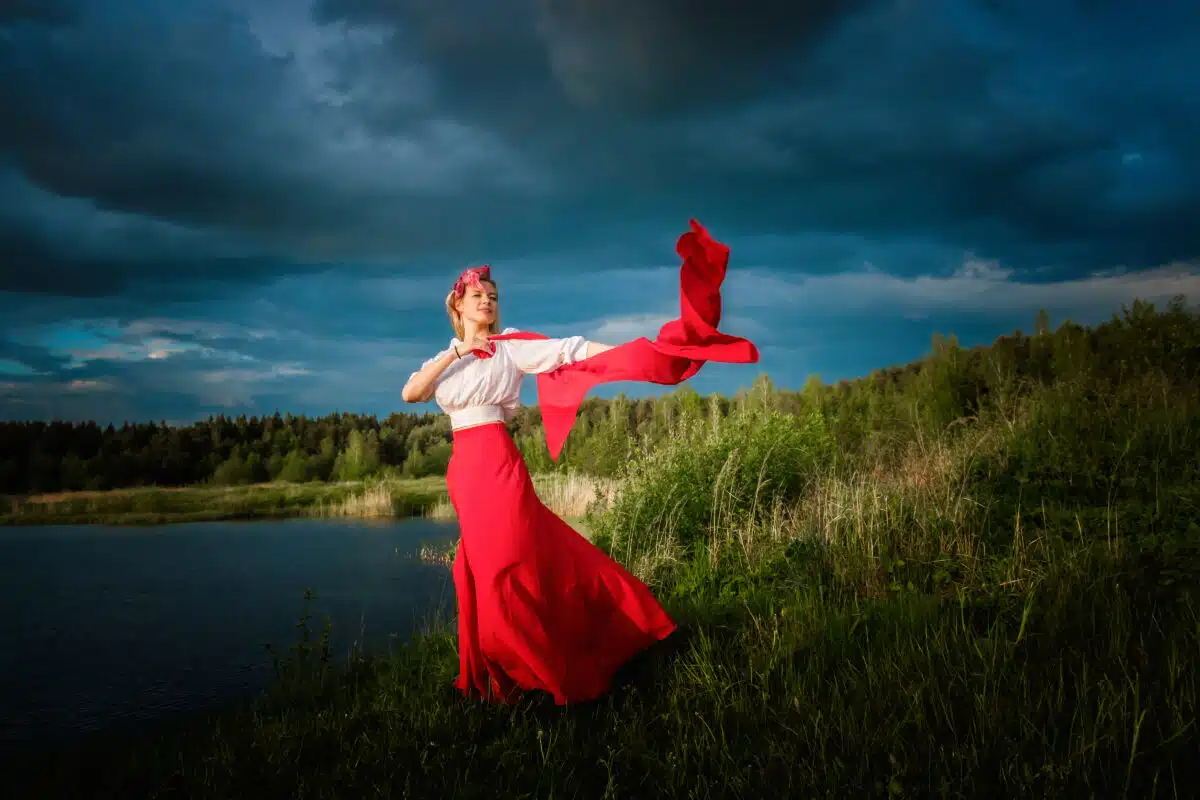
“A Tempest” by Emily Elizabeth Dickinson
An awful tempest mashed the air,
The clouds were gaunt and few;
A black, as of a spectre’s cloak,
Hid heaven and earth from view.
The creatures chuckled on the roofs
And whistled in the air,
And shook their fists and gnashed their teeth.
And swung their frenzied hair.
The morning lit, the birds arose;
The monster’s faded eyes
Turned slowly to his native coast,
And peace was Paradise!
“Storm” by Madison Julius Cawein
I looked into the night and saw
GOD writing with tumultuous flame
Upon the thunder’s front of awe, –
As on sonorous brass, – the Law,
Terrific, of HIS judgement name.
Weary of all life’s best and worst,
With hands of hate, I – who had pled,
I, who had prayed for death at first
And had not died – now stood and cursed
GOD, yet he would not strike me dead.
“The Storm Cone” by Rudyard Kipling
This is the midnight-let no star
Delude us-dawn is very far.
This is the tempest long foretold,
Slow to make head but sure to hold
Stand by! The lull ‘twixt blast and blast
Signals the storm is near, not past;
And worse than present jeopardy
May our forlorn to-morrow be.
If we have cleared the expectant reef,
Let no man look for his relief.
Only the darkness hides the shape
Of further peril to escape.
It is decreed that we abide
The weight of gale against the tide
And those huge waves the outer main
Sends in to set us back again.
They fall and whelm. We strain to hear
The pulses of her labouring gear,
Till the deep throb beneath us proves,
After each shudder and check, she moves!
She moves, with all save purpose lost,
To make her offing from the coast;
But, till she fetches open sea,
Let no man deem that he is free!
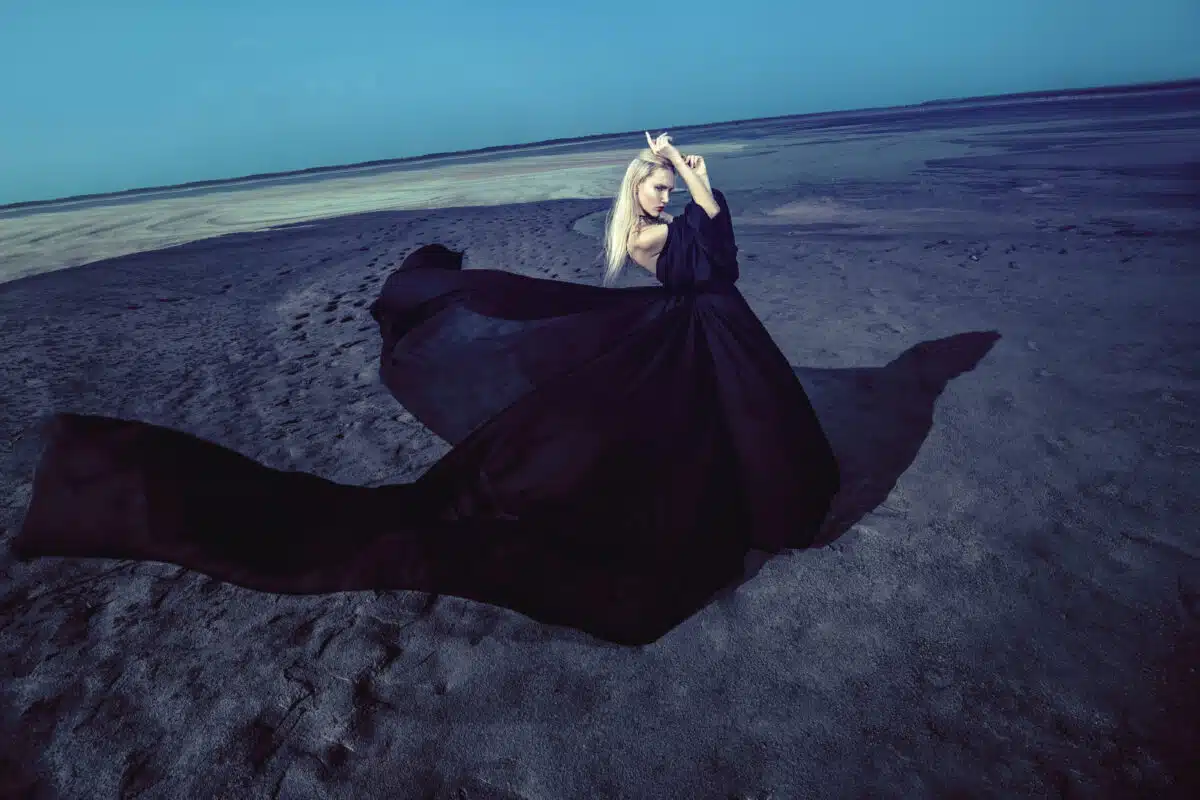
“Storm On Lake Asquam” by John Greenleaf Whittier
A cloud, like that the old-time Hebrew saw
On Carmel prophesying rain, began
To lift itself o’er wooded Cardigan,
Growing and blackening. Suddenly, a flaw
Of chill wind menaced; then a strong blast beat
Down the long valley’s murmuring pines, and woke
The noon-dream of the sleeping lake, and broke
Its smooth steel mirror at the mountains’ feet.
Thunderous and vast, a fire-veined darkness swept
Over the rough pine-bearded Asquam range;
A wraith of tempest, wonderful and strange,
From peak to peak the cloudy giant stepped.
One moment, as if challenging the storm,
Chocorua’s tall, defiant sentinel
Looked from his watch-tower; then the shadow fell,
And the wild rain-drift blotted out his form.
And over all the still unhidden sun,
Weaving its light through slant-blown veils of rain,
Smiled on the trouble, as hope smiles on pain;
And, when the tumult and the strife were done,
With one foot on the lake and one on land,
Framing within his crescent’s tinted streak
A far-off picture of the Melvin peak,
Spent broken clouds the rainbow’s angel spanned.
“A Thunderstorm At Night” by Eric Mackay
The lightning is the shorthand of the storm
That tells of chaos; and I read the same
As one may read the writing of a name, –
As one in Hell may see the sudden form
Of God’s fore-finger pointed as in blame.
How weird the scene! The Dark is sulphur-warm
With hints of death; and in their vault enorme
The reeling stars coagulate in flame.
And now the torrents from their mountain-beds
Roar down uncheck’d; and serpents shaped of mist
Writhe up to Heaven with unforbidden heads;
And thunder-clouds, whose lightnings intertwist,
Rack all the sky, and tear it into shreds,
And shake the air like Titians that have kiss’d!
“Tempest. A Quatrain.” by Madison Julius Cawein
With helms of lightning, glittering in the skies,
On steeds of thunder, cloudy form on form,
Terrific beauty in their hair and eyes,
Behold the wild Valkyries of the storm.
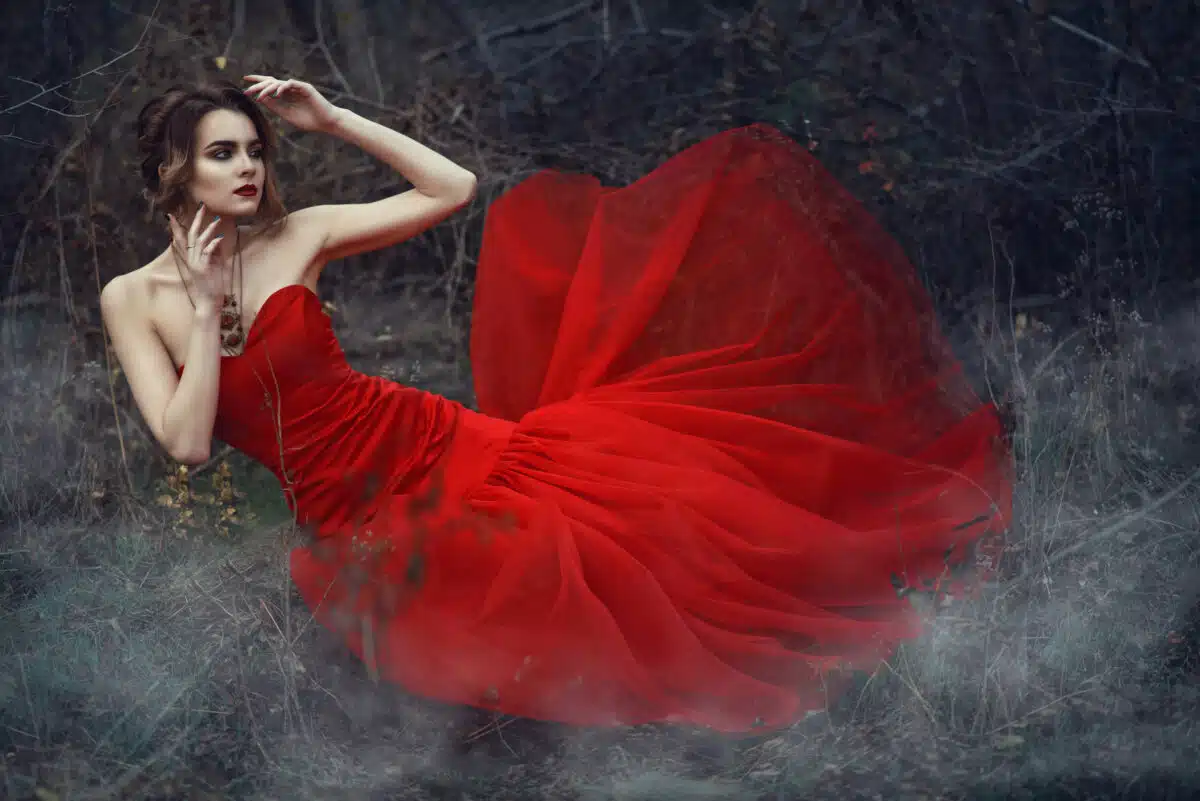
“The Fire” by John Frederick Freeman
Near the house flowed, or paused, the black Canal,
Edged by the timber piles so black and tall.
From the rotten fence I watched the horses pull
Along the footpath, slow and beautiful,
Moving with strength and ease, in their great size
And untired movement wonderful to my eyes;
Their dull brass clanking as each shaggy foot
Stamped the soft cinder track as fine as soot.
The driver lurched old and forbidding by,
Not seeing the child that feared to meet his eye.
I watched the rope dip, tighten, and the water flash
In falling, and then heard the hiss and splash;
I watched the barge drag slowly on and on,
Not dreaming how lovely a ship could ride the water upon,
Not dreaming how lovely flowing water was,
Sung to by trees and fingered by long grass,
Or running from the bosom of a hill
Down, where it flows so deep that it seems still.
But it was by that rotten fence one night
I saw the timber piles break into light,
Suddenly leaping into a heavenly flame
That played with the wind and one with the wind became.
Pile to pile gave its fire, till they were like
Bright angels with flashing swords before they strike,
Terrible and lovely. But men those angels fought,
Small and humble and patient all night wrought,
And all day wrought and night and day again,
And night and day, pouring their hissing rain,
Until the angels tired and one by one died.
Then their black spectres haunted the waterside,
Charred ruins, broken-limbed, no more erect,
Or heaped black dust, with cold white ashes flecked.
But I had seen the angel-quelling men,
With blackened and bruised face, the horses thin,
The glittering harness, the leaky, bubbling mains,
The broad smoke, and the steam from the leaping rains:–
O I had seen what I should not forget,
Men that defeated ruinous angels and shall still defeat.
“Flood-tide” by Susan Coolidge (Sarah Chauncey Woolsey)
All night the thirsty beach has listening lain,
With patience dumb,
Counting the slow, sad moments of her pain;
Now morn has come,
And with the morn the punctual tide again.
I hear the white battalions down the bay
Charge with a cheer;
The sun’s gold lances prick them on their way,–
They plunge, they rear,–
Foam-plumed and snowy-pennoned, they are here!
The roused shore, her bright hair backward blown,
Stands on the verge
And waves a smiling welcome, beckoning on
The flying surge,
While round her feet, like doves, the billows crowd and urge.
Her glad lips quaff the salt, familiar wine;
Her spent urns fill;
All hungering creatures know the sound, the sign,–
Quiver and thrill,
With glad expectance crowd and banquet at their will.
I, too, the rapt contentment join and share;
My tide is full;
There is new happiness in earth, in air:
All beautiful
And fresh the world but now so bare and dull.
But while we raise the cup of bliss so high,
Thus satisfied,
Another shore beneath a sad, far sky
Waiteth her tide,
And thirsts with sad complainings still denied.
On earth’s remotest bound she sits and waits
In doubt and pain;
Our joy is signal for her sad estates;
Like dull refrain
Marring our song, her sighings rise in vain.
To each his turn–the ebb-tide and the flood,
The less, the more–
God metes his portions justly out, I know;
But still before
My mind forever floats that pale and grieving shore.
From “Fire” by William McKendree Carleton
Fire! – fire! – fire! – fire! – it sets me in a craze
To see a first-class building all ablaze;
A burning house resembles, when I’m nigh,
Some old acquaintance just about to die;
For structures that a person often sees
Look some like human beings – same as trees.
(There used to be some trees on my old place
That I’d know anywhere – just by their face.)
And when, last night, some bells began to cry,
And big fire-engines rushed and rattled by,
In just three minutes down the stairs I strode,
And hurried – somewhat dressed – into the road
(Partly to help a bit, if so might be,
And partly, I suppose, to hear and see).
It was a dark and thunder-stormy night;
There wasn’t one inch of honest sky in sight;
Great black-finned clouds were swimming through the air,
And now and then their lightning-eyes would glare,
And, like a lot of cannon far away,
Some peals of thunder came from o’er the bay.
‘Twas one of those strange nights I can’t explain,
That make you think they’re just a-going to rain,
But never do – save now and then a trace
Of a small drop comes dashing on your face;
One of those nights that try to keep you vexed
And wondering as to what will happen next.
I like such times: they kind of draw me nearer
To things unseen, and make all mystery clearer.
I ran like sin, and reached the fire at last:
A good-sized church was going, pretty fast.
(I’d noticed it a hundred times or more,
And several times had stepped inside the door.)
The burglar flames within had prowled around
A long time previous to their being found,
Till they had gained such foothold and such might
They’d turned to robbers – stealing plain in sight.
The dome and spires had on them flags of red;
They soon came thundering down from overhead.
It looked as if infernal spirits came,
To take this church away, in smoke and flame!
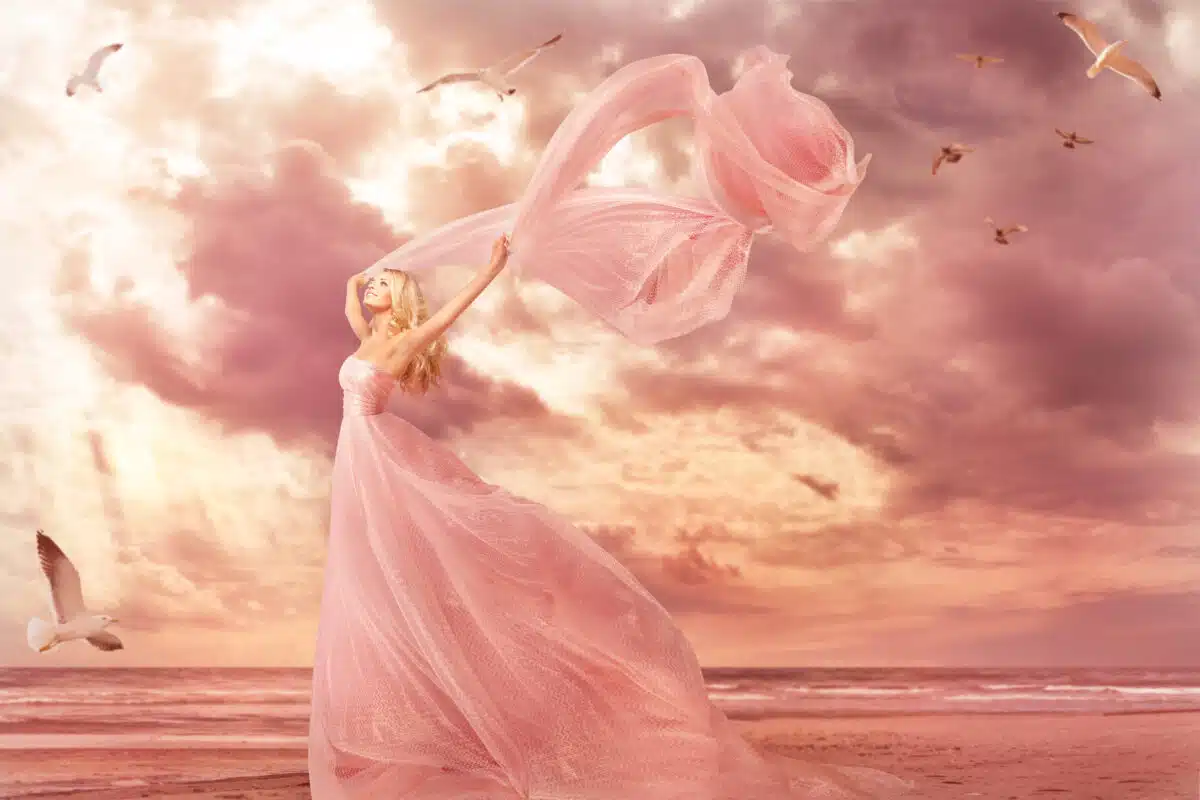
“Storm” by Fedkovich (Florence Randal Livesay, Translator)
‘How it blows
From Yuha!
See how the dark cloud grows!
What wrath it brings!…
But when, who knows,
O villagers of Yuha,
Will it dry
Your bleeding wounds?
Ah, when…?’
‘Is it you, still,
O Villager of Yuha?’
‘Still it is I.
Cleansèd, my wounds
All healèd lie.’
“The Fire At Ross’s Farm” by Henry Lawson
The squatter saw his pastures wide
Decrease, as one by one
The farmers moving to the west
Selected on his run
Selectors took the water up
And all the black soil round
The best grass land the squatter had
Was spoilt by Ross’s ground
Now many schemes to shift old Ross
Had racked the squatter’s brains
But Sandy had the stubborn blood
Of Scotland in his veins
He held the land and fenced it in
He cleared and ploughed the soil
And year by year a richer crop
Repaid him for his toil
Between the homes for many years
The devil left his tracks
The squatter pounded Ross’s track
And Sandy pounded Black’s
A well upon the lower run
Was filled with earth and logs
And Black laid baits about the farm
To poison Ross’s dogs
It was indeed a deadly feud
Of class and creed and race
But yet, there was a Romeo
And a Juliet in the case
And more than once across the flats
Beneath the Southern Cross
Young Robert Black was seen to ride
With pretty Jenny Ross
One Christmas time, when months of drought
Had parched the western creeks
The bushfires started in the north
And travelled south for weeks
At night along the riverside
The scene was grand and strange
The hill fires looked like lighted streets
Of cities in the range
The cattle tracks between the trees
Were like long dusky aisles
And on a sudden breeze the fire
Would sweep along for miles
Like sounds of distant musketry
It crackled through the breaks
And o’er the flat of silver grass
It hissed like angry snakes
It leapt across the flowing streams
And raced the pastures broad
It climbed the trees and lit the boughs
And through the scrubs it roared
The bees fell stifled in the smoke
Or perished in their hives
And with the stock, the kangaroos
Went flying for their lives
The sun had set on Christmas eve
When, through the scrub lands wide
Young Robert Black came riding home
As only natives ride
He galloped to the homestead door
And gave the first alarm
“The fire is past the granite spur,
And close to Ross’s farm”
“Now father, send the men at once
They won’t be wanted here
Poor Ross’s wheat is all he has
To pull him through the year”
“Then let it burn”, the squatter said
“You shall not take the men –
Go out and join your precious friends
And don’t come back again.”
“I won’t come back,” young Robert cried
And reckless in his ire
He sharply turned his horse’s head
And galloped towards the fire
And there for three long weary hours
Half blinded with smoke and heat
Old Ross and Robert fought the flames
That neared the ripened wheat
The farmer’s hand was nerved by fears
Of danger and of loss
And Robert fought the stubborn foe
For the love of Jenny Ross
But serpent like the curves and lines
Slipped past them and between
Until they reached the boundary where
The old coach track had been
“The track is now our only hope
There we must stand” cried Ross
“For nought on earth can stop the fire
If once it gets across.”
Then came a cruel gust of wind
And with a fiendish rush
The flames leapt over the narrow path
And lit the fence of brush
“The crop must burn!” the farmer cried
“We cannot save it now”
And down upon the blackened ground
He dashed the ragged bough
But wildly, in a rush of hope
His heart began to beat
For over the crackling fire he heard
The sound of horse’s feet
“Here’s help at last,” young Robert cried
And even as he spoke
The squatter with a dozen men
Came racing through the smoke
Down on the ground the stockmen jumped
And bared each brawny arm
They tore green branches from the trees
And fought for Ross’s farm
And when before the gallant band
The beaten flames gave way
Two grimy hands in friendship joined –
And it was Christmas Day.
“War” by Ella Wheeler Wilcox
I
There is no picturesqueness and no glory,
No halo of romance, in war to-day.
It is a hideous thing; Time would turn grey
With horror, were he not already hoary
At sight of this vile monster, foul and gory.
Yet while sweet women perish as they pray,
And new-born babes are slaughtered, who dare say
‘Halt!’ till Right pens its ‘Finis’ to the story!
There is no pathway, but the path through blood,
Out of the horrors of this holocaust.
Hell has let loose its scalding crimson flood,
And he who stops to argue now is lost.
Not brooms of creeds, not Pacifistic words
Can stem the tide, but swords-uplifted swords!
II
Yet, after Peace has turned the clean white page
There shall be sorrow on the earth for years;
Abysmal grief, that has no eyes for tears,
And youth that hobbles through the earth like age.
But better to play this part upon life’s stage
Than to aid structures that a tyrant rears,
To live a stalwart hireling torn with fears,
And shamed by feeding on a conqueror’s wage.
Death, yea, a thousand deaths, were sweet in truth
Rather than such ignoble life. God gave
Being, and breath, and high resolve to youth
That it might be Wrong’s master, not its slave.
Our road to Freedom is the road to guns!
Go, arm your sons! I say, Go, arm your sons!
III
Arm! arm! that mandate on each wind is whirled.
Let no man hesitate or look askance,
For from the devastated homes of France
And ruined Belgium the cry is hurled.
Why, Christ Himself would keep peace banners furled
Were He among us, till, with lifted lance,
He saw the hosts of Righteousness advance
To purify the Temples of the world.
There is no safety on the earth to-day
For any sacred thing, or clean, or fair;
Nor can there be, until men rise and slay
The hydra-headed monster in his lair.
War! horrid War! now Virtue’s only friend;
Clasp hands with War, and battle to the end!
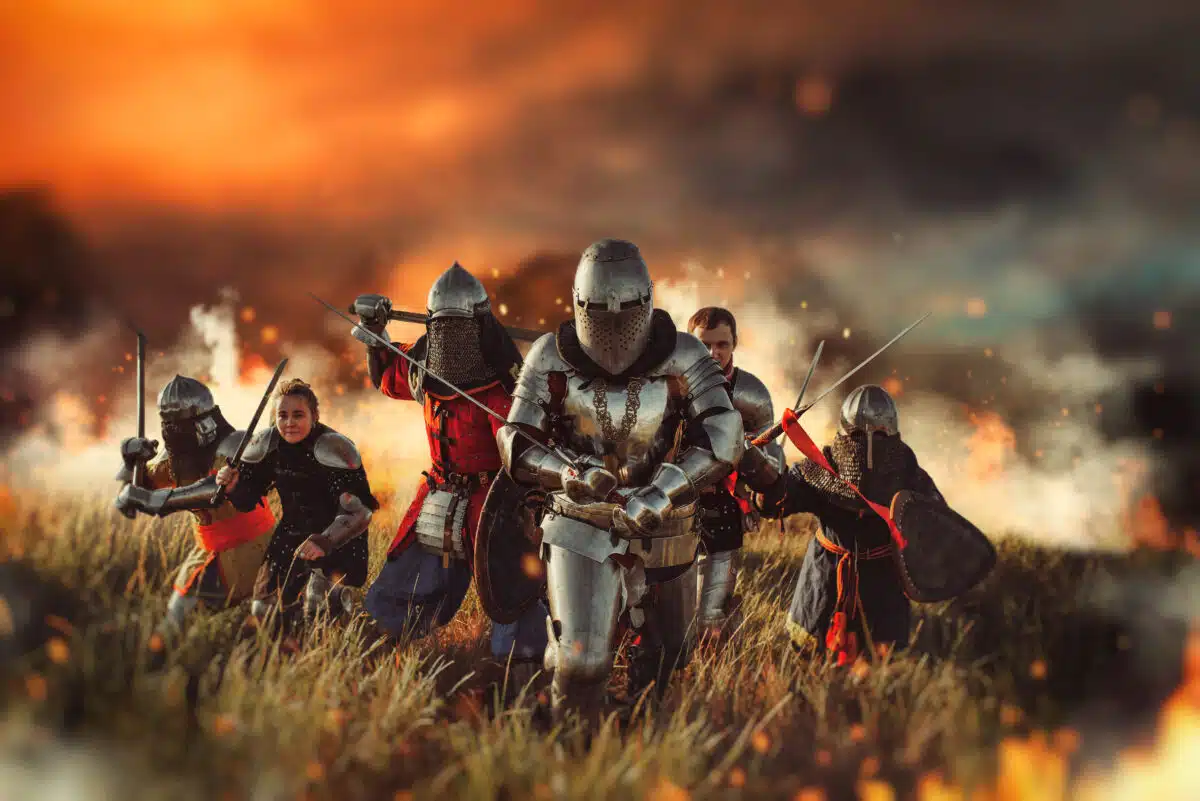
“Into Battle” by Julian Grenfell
The naked earth is warm with Spring,
And with green grass and bursting trees
Leans to the sun’s gaze glorying,
And quivers in the sunny breeze;
And Life is Colour and Warmth and Light,
And a striving evermore for these;
And he is dead who will not fight;
And who dies fighting has increase.
The fighting man shall from the sun
Take warmth, and life from the glowing earth;
Speed with the light-foot winds to run,
And with the trees to newer birth;
And find, when fighting shall be done,
Great rest, and fullness after dearth.
All the bright company of Heaven
Hold him in their high comradeship,
The Dog-Star, and the Sisters Seven,
Orion’s Belt and sworded hip.
The woodland trees that stand together,
They stand to him each one a friend;
They gently speak in the windy weather;
They guide to valley and ridges’ end.
The kestrel hovering by day,
And the little owls that call by night,
Bid him be swift and keen as they,
As keen of ear, as swift of sight.
The blackbird sings to him, “Brother, brother,
If this be the last song you shall sing,
Sing well, for you may not sing another;
Brother, sing.”
In dreary, doubtful, waiting hours,
Before the brazen frenzy starts,
The horses show him nobler powers;
O patient eyes, courageous hearts!
And when the burning moment breaks,
And all things else are out of mind,
And only Joy-of-Battle takes
Him by the throat, and makes him blind,
Through joy and blindness he shall know,
Not caring much to know, that still
Nor lead nor steel shall reach him, so
That it be not the Destined Will.
The thundering line of battle stands,
And in the air Death moans and sings;
But Day shall clasp him with strong hands,
And Night shall fold him in soft wings.
“The Casualty Clearing Station” by Gilbert Waterhouse
A bowl of daffodils,
A crimson-quilted bed,
Sheets and pillows white as snow—
White and gold and red—
And sisters moving to and fro,
With soft and silent tread.
So all my spirit fills
With pleasure infinite,
And all the feathered wings of rest
Seem flocking from the radiant West
To bear we thro’ the night.
See, how they close me in,
They, and the sisters’ arms.
One eye is closed, the other lid
Is watching how my spirit slid
Toward some red-roofed farms,
And having crept beneath them slept
Secure from war’s alarms.
